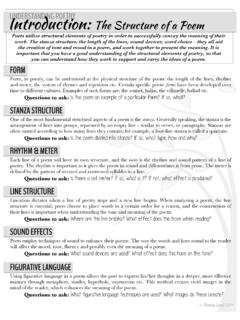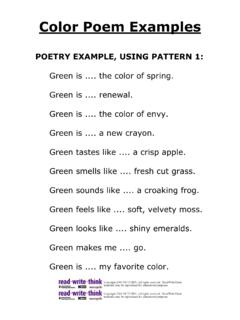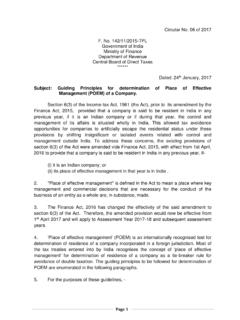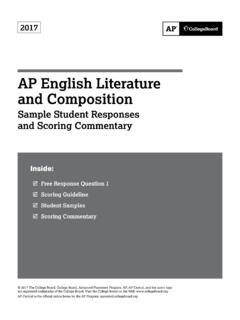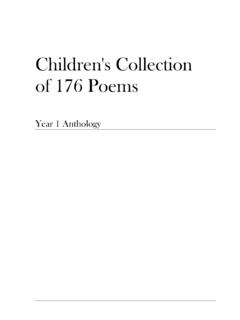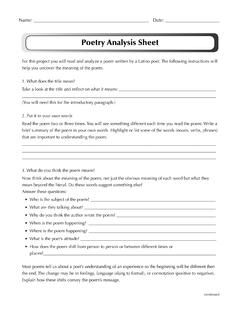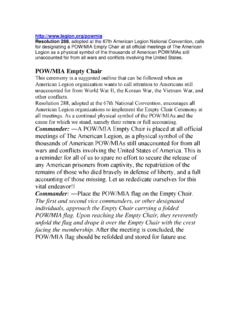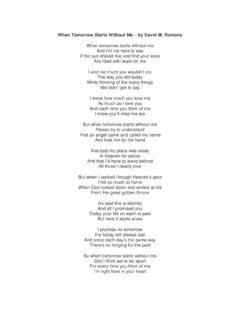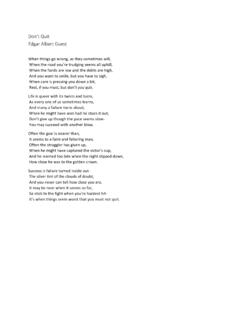Transcription of Audre Lorde - poems - Poem Hunter
1 Classic Poetry Series Audre Lorde - poems - Publication Date: 2012 - The World's Poetry ArchiveAudre Lorde (18 February 1934 17 November 1992) Audre Lorde (born Audrey Geraldine Lorde ) was a Caribbean-American writer,poet and activist. <b>Life</b> Lorde was born in New York City to Caribbean immigrants from Grenada,Frederick Byron Lorde (called Byron) and Linda Gertrude Belmar Lorde , whosettled in Harlem. Nearsighted to the point of being legally blind, and theyoungest of three daughters (her sisters named Phyllis and Helen), Lorde grewup hearing her mother's stories about the West Indies.
2 She learned to talk whileshe learned to read, at the age of four, and her mother taught her to write ataround the same time. She wrote her first poem when she was in eighth grade. Born Audrey Geraldine Lorde , she chose to drop the "y" from her name while stilla child, explaining in Zami: A New Spelling of My Name, that she was moreinterested in the artistic symmetry of the "e"-endings in the two side-by-sidenames " Audre Lorde " than in spelling her name the way her parents hadintended. After graduating from Hunter College High School and experiencing the grief ofher best friend Genevieve "Gennie" Thompson's death, Lorde immediately lefther parents' home and became estranged from her family.
3 She attended HunterCollege from 1954 to 1959 and graduated with a bachelor's degree. Whilestudying library science, Lorde supported herself by working various odd jobssuch as factory worker, ghost writer, social worker, X-ray technician, medicalclerk, and arts and crafts supervisor, moving out of Harlem to Stamford,Connecticut and beginning to explore her lesbian sexuality. In 1954, she spent a pivotal year as a student at the National University ofMexico, a period she described as a time of affirmation and renewal: sheconfirmed her identity on personal and artistic levels as a lesbian and poet. Onher return to New York, she attended college, worked as a librarian, continuedwriting and became an active participant in the gay culture of Greenwich furthered her education at Columbia University, earning a master's degree inlibrary science in 1961.
4 She also worked during this time as a librarian at MountVernon Public Library and married attorney Edwin Rollins; they divorced in 1970after having two children, Elizabeth and Jonathan. In 1966, Lorde became headlibrarian at Town School Library in New York City, where she remained - The World's Poetry Archive In 1968 Lorde was writer-in-residence at Tougaloo College in Mississippi, whereshe met Frances Clayton, a white professor of psychology, who was to be herromantic partner until 1989. From 1977 to 1978 Lorde had a brief affair with thesculptor and painter Mildred Thompson. The two met in Nigeria in 1977 at theSecond World Black and African Festival of Arts and Culture (FESTAC 77).
5 Theiraffair ran its course during the time that Thompson lived in Washington, andwas teaching at Howard University. Lorde died on November 17, 1992, in , (where she had been living with Gloria I. Joseph), after a 14-year strugglewith breast cancer. She was 58. In her own words, Lorde was a "black, lesbian,mother, warrior, poet". In an African naming ceremony before her death, shetook the name Gambda Adisa, which means "Warrior: She Who Makes HerMeaning Known". <b>Career</b> Lorde 's poetry was published very regularly during the 1960s in <a href=" Her second volume, Cables to Rage (1970), which was mainly written during hertenure at Tougaloo College in Mississippi, addressed themes of love, betrayal,childbirth and the complexities of raising children.
6 It is particularly noteworthy forthe poem "Martha", in which Lorde poetically confirms her homosexuality: "[W]eshall love each other here if ever at all." Later books continued her political aimsin lesbian and gay rights, and feminism. In 1980, together with Barbara Smithand Cherr e Moraga, she co-founded Kitchen Table: Women of Color Press, thefirst publisher for women of colour. Lorde was State Poet of New York from1991 to 1992. <b>Theory</b> Lorde criticised feminists of the 1960s, from the National Organization forWomen to Betty Friedan's The Feminine Mystique, for focusing on the particularexperiences and values of white middle-class women.
7 Her writings are based onthe "theory of difference", the idea that the binary opposition between men andwomen is overly simplistic: although feminists have found it necessary to presentthe illusion of a solid, unified whole, the category of women itself is full ofsubdivisions. Lorde identified issues of class, race, age, gender and even health this lastwas added as she battled cancer in her later years as being fundamental tothe female experience. She argued that, although the gender difference hasreceived all the focus, these other differences are also essential and must - The World's Poetry Archiverecognised and addressed.
8 " Lorde ", it is written, "puts her emphasis on theauthenticity of experience. She wants her difference acknowledged but notjudged; she does not want to be subsumed into the one general category of'woman'". While acknowledging that the differences between women are wide and varied,most of Lorde 's works are concerned with two subsets that concerned herprimarily race and sexuality. She observes that black women's experiences aredifferent from those of white women, and that, because the experience of thewhite woman is considered normative, the black woman's experiences aremarginalised; similarly, the experiences of the lesbian (and, in particular, theblack lesbian) are considered aberrational, not in keeping with the true heart ofthe feminist movement.
9 Although they are not considered normative, Lordeargues that these experiences are nevertheless valid and feminist. <b> Lorde and Contemporary Feminist Thought</b> Lorde set out actively to challenge white women, confronting issues of racism infeminist thought. She maintained that a great deal of the scholarship of whitefeminists served to augment the oppression of black women, a conviction thatled to angry confrontation, most notably in a scathing open letter addressed toradical lesbian feminist Mary Daly, to which Lorde stated she received no reply. This fervent disagreement with notable white feminists furthered her persona asan "outsider": "in the institutional milieu of black feminist and black lesbianfeminist scholars [.]
10 ] and within the context of conferences sponsored by whitefeminist academics, Lorde stood out as an angry, accusatory, isolated blackfeminist lesbian voice". The criticism did not go only one way: many white feminists were angered byLorde's brand of feminism. In her essay "The Master's Tools Will Never Dismantlethe Master's House", Lorde attacked the underlying racism of feminism,describing it as unrecognized dependence on the patriarchy. She argued that, bydenying difference in the category of women, feminists merely passed on oldsystems of oppression and that, in so doing, they were preventing any real,lasting change.










